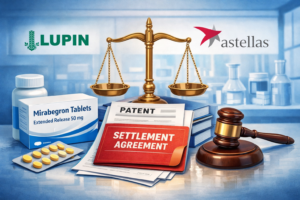New Delhi, June 20, 2025:
In a significant development for e-commerce and intermediary platforms, the Delhi High Court has upheld the safe harbour protection granted to IndiaMART in a trademark infringement case filed by global sportswear brand PUMA SE. The Court ruled that IndiaMART’s inclusion of “PUMA” in its search dropdown does not amount to trademark use or infringement, as it acts merely as a neutral intermediary facilitating buyer-seller interactions.
Background: PUMA’s Allegations Against IndiaMART
PUMA SE had approached the court alleging that IndiaMART enabled the sale of counterfeit products on its platform. A major point of contention was IndiaMART’s autocomplete feature in the search bar, which suggested the term “PUMA” and led to product listings that allegedly included fake items bearing PUMA’s registered trademark. Initially, a single judge bench of the High Court granted an interim injunction directing IndiaMART to block the use of the word “PUMA” in its search bar and remove all infringing listings.
Division Bench Verdict: A Relief for Online Platforms
The Division Bench of the Delhi High Court overturned the interim injunction, providing clarity on the limits of intermediary liability:
Not a Trademark Use: The Court held that auto-suggestions in the search bar do not constitute “use in the course of trade” under the Trade Marks Act, 1999. These are automatically generated based on user inputs and do not represent deliberate usage or branding by the platform itself.
Intermediary Protection Under IT Act: IndiaMART was deemed to qualify for protection under Section 79 of the Information Technology Act, 2000. The Court recognized the platform as a neutral intermediary that does not initiate or modify the content of the listings.
Compliance with Notice-and-Takedown Obligations: The Court observed that once PUMA notified IndiaMART of the infringing listings, the platform acted promptly to take them down. Therefore, it fulfilled its statutory duty and retained the protection under the safe harbour clause.
Obligations and Responsibilities for Intermediaries
While the Court reaffirmed IndiaMART’s intermediary status, it also clarified that such platforms are required to maintain robust mechanisms for taking down infringing content upon receiving notice from trademark owners. Failure to do so could result in losing safe harbour protection.
Key Legal Takeaways
Legal Point Court’s Ruling
Trademark Use Search bar suggestions are not “use in the course of trade”
Intermediary Role IndiaMART is a passive, neutral intermediary
Safe Harbour Maintained under IT Act Section 79
Takedown Duty Prompt removal after notice is mandatory
Impact on E-Commerce Industry
The ruling is expected to have a far-reaching impact on digital marketplaces, affirming that automated functions like search suggestions do not amount to active infringement. It also reinforces the need for platforms to establish strong internal protocols for addressing IP-related complaints.




